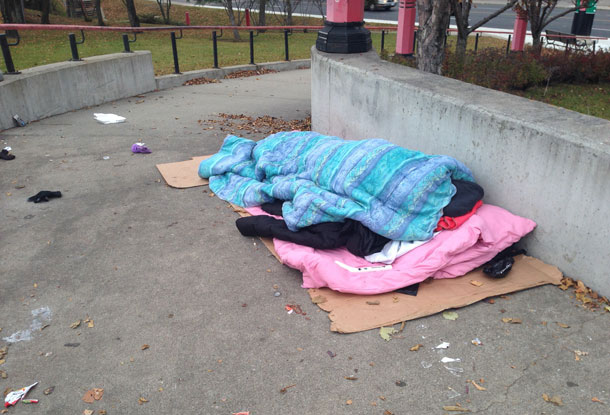
Toronto Public Health launches program to track all homeless deaths
TORONTO – Toronto Public Health has launched a new tracking system to address the limited data collected for individuals who have died while homeless and not living in City-funded shelters. The new initiative will gather better data to provide a more fulsome understanding of the scope of this complex issue, which remains a significant issue in Toronto that contributes to health inequities for many vulnerable residents across the city.
“Until now, death data for homeless people in Toronto has been limited to those who were living in City-funded shelters. As a result, the scope of this problem has been unknown,” said Dr. Barbara Yaffe, Toronto’s Acting Medical Officer of Health. “This new data will help guide efforts to improve the health of our most vulnerable residents.”
The initiative represents a collaboration between health and social service agencies that support homeless people and the Office of the Chief Coroner of Ontario who will help to verify the data with Toronto Public Health. Data including the deceased individual’s age and gender, along with date, location and unofficial cause of death will be collected for homeless people who die while living on the street, at a friend or family member’s place, at a shelter or at other locations in Toronto. All individual-level data will be treated as confidential.
“I am very pleased to see this new initiative launched as it will provide us with a more fulsome understanding of this issue and the true impact on individuals, families and in our community,” said Councillor Paul Ainslie (Ward 43 Scarborough East), the City’s lead on this homelessness-related issue. “Until now, gathering data on individuals who have died while living beyond the City-funded shelter system proved very difficult and often involved incomplete information that didn’t tell the whole story. I’m confident that this positive step will help us to begin addressing this very complex issue.”
More information about the City of Toronto’s efforts to protect and promote the health of vulnerable groups including homeless and marginally housed individuals is available on the Toronto Website.






